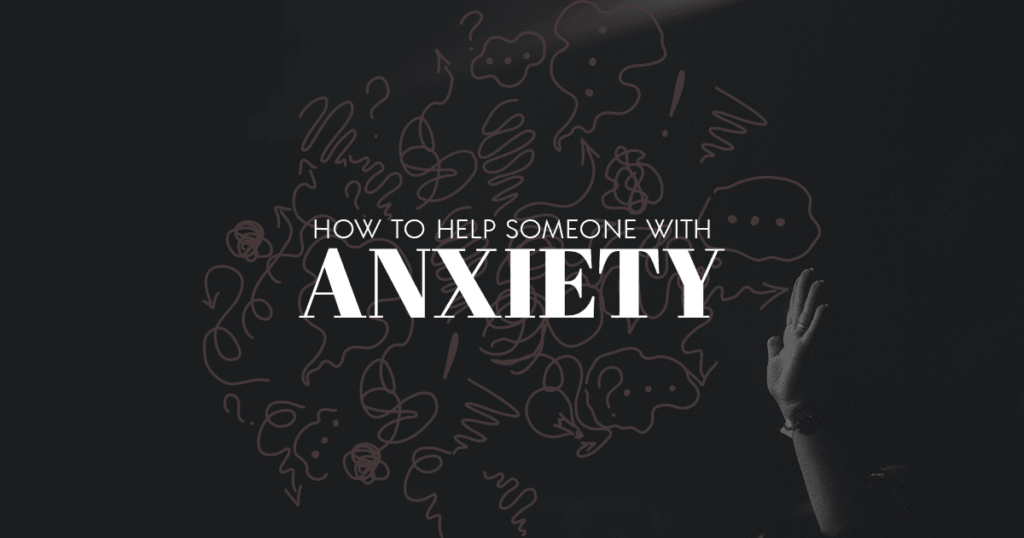If someone in your family or friends is suffering from anxiety or has been diagnosed with an anxiety disorder, you will want to know the best tactics for providing the most effective help. Learning how to help someone suffering from anxiety can be tough at first, but after you understand their issues, you should be able to communicate successfully with them
Mental health illnesses can be challenging to manage at times. Many people are even confused to date about what causes anxiety. Still, when it comes to assisting and supporting someone who is suffering from anxiety, we have highlighted some useful anxiety dos and don’ts so that you can ensure that the steps you take will help them feel better once again.
Learn as Much as you can About Their Anxiety Symptoms
Anxiety has diverse effects on different people. Anxiety symptoms can manifest themselves in various ways, including defensiveness, anger, and restlessness, to name a few.
Reading up on the various types of anxiety and their associated symptoms might help you comprehend what the person you care about is going through. As a result, you’ll be able to empathize with their situation and recognize when they require additional assistance.
Make Them Aware That you are There for Them
When learning how to help someone with anxiety, you might want to tell them that you’ve observed they’ve become more anxious recently and that you’d like to assist them.
This will usually come as a pleasant relief to the person, as they will realize that they are not alone in their concern. This talk allows the individual to recognize that there are people who care about them, want to listen to them, and want to help them feel better. Someone suffering from anxiety might also be able to tell you how you might help them control their symptoms.
Pay Attention to How They Want to be Helped
Listen carefully to the person’s preferences when you inquire how you might help them. After all, you want to know how to assist and support people who are experiencing anxiety. They may need assistance breaking down a task that is causing them anxiety, or they may simply need someone to talk to.
You can provide them with the emotional support that will truly make a difference if you take the time to listen and understand their needs.
Maintain Open Lines of Communication
It is critical to have an open line of communication with someone suffering from anxiety.
If you are able, see the person frequently to aid with anxiety management. Spend one-on-one time with them so that they can talk about anything that is causing them anxiety. You can also stay in touch over the phone via video or phone, calling them once a week or sending a text every few days to check in on them.
Take Care of Yourself
It’s natural if you get frustrated, worried, or exhausted when you volunteer to help people with anxiety. Their worries are probably affecting you as well.
Make sure you’re coping with these feelings while also keeping your health. Talk to other friends or family members about how you’re feeling, consider seeking therapy help, prioritize your physical and mental health, and schedule time each week to participate in activities that you enjoy. If you keep yourself healthy, you will be in a much better position to aid the individual with anxiety.
Also, keep in mind that you’re trying your best.
Don’t Bring up Their Anxiety all the Time
When you’re with the individual or chatting to them on the phone, don’t bring up their fear or ask questions about it all the time. They won’t feel compelled to talk about their worry if they don’t want to. Instead, keep the conversation moving and allow them to discuss it if they so desire.
Don’t Enable Their Anxiety
A person who suffers from anxiety may try to avoid certain circumstances or places. Perhaps, as a result, you’ve begun to change your conduct. It’s possible that you’ve started avoiding certain places and situations or that you’ve started doing chores to help the individual avoid certain places or situations in the future.
Nonetheless, this avoidance of responsibility may have a negative impact on them in the long term. Their persistent avoidance can worsen their anxieties and prevent them from realizing that they can deal with the problems they are attempting to avoid.
Don’t Put Them Under any Unnecessary Stress
As important as it is that you do not encourage their behavior, it is equally important that you do not force the individual to visit places or engage in situations that they are really uncomfortable with.
This is something they should work towards gradually, with the support of qualified therapy personnel. Pushing them too far may result in the loss of trust in your relationship and the infliction of considerable emotional distress on them.
Do not get Frustrated
A lack of willingness to participate in hobbies, work, or social activities might be a symptom of acute anxiety. Remember that your loved one’s protection mechanism is kicking in if they isolate themselves from social events, friends, and family.
Don’t take it personally if they aren’t as engaged as you are, and don’t become frustrated if they aren’t.
Don’t Expect Instant Results
It takes time to get back on your feet. By amassing as much resolution and patience as possible, do everything you can to help, not impede, this process. Your loved ones will gradually learn tactics and skills to assist them in dealing with their anxiety, allowing them to return to regular life.
Mental health does not improve over time. The circumstances that caused their mental condition to deteriorate are likely complicated and will take time to heal. If you feel discouraged by a lack of progress, keep this in mind.
Recognizing When it is Appropriate to Seek Assistance
Although anxiety symptoms can appear overwhelming and permanent, anxiety is a very treatable condition. Identifying and encouraging someone you care about to get treatment from their primary care physician or a mental health professional if they are feeling pervasive anxiety or if you have concerns that their anxiety is interfering with everyday life is important.
To learn more about treatment options for anxiety in the San Diego area, call the Mental Health Center of San Diego today at (858) 258-9883.















